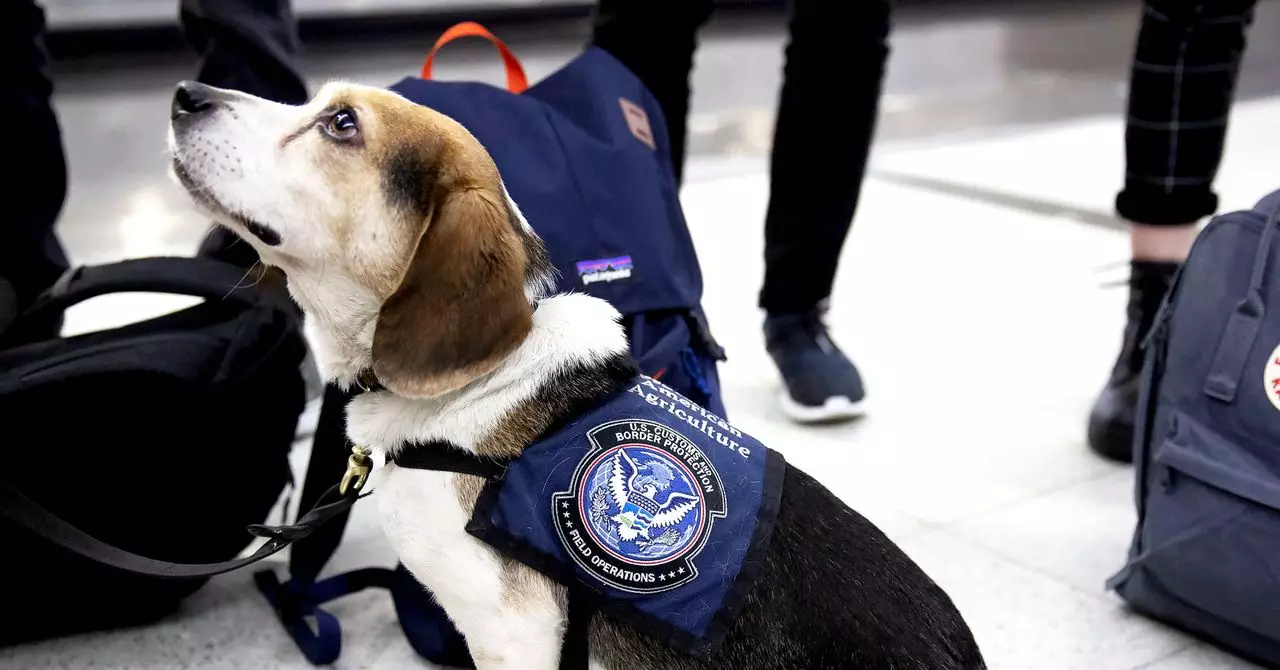In a surprising and unsettling shift, the U.S. Department of Agriculture (USDA) has undergone massive staff reductions that have left critical responsibilities in jeopardy. Among the ranks of those dismissed was Derek Copeland, a trainer at the National Dog Detection Training Center (NDDTC) who played a pivotal role in training canines to detect invasive species and potential health hazards. Cuts such as these represent a trend that compromises not only agricultural integrity but also public health.
This staffing shakeup comes on the heels of the Trump administration’s broader governmental restructuring agenda, whimsically named the Department of Government Efficiency (DOGE). It has resulted in a staggering 6,000 employees being laid off, with the USDA losing approximately one-fifth of its dedicated trainers. The ramifications of such a purging operation ripple far beyond mere numbers; it signals a retreat from an ardent commitment to protective measures against biological threats that can compromise both farm outputs and consumer safety.
The Role of Trained Professionals in Safeguarding Agriculture
Copeland’s regretful dismissal underscores a more pressing issue: the removal of highly specialized personnel, such as dog trainers, can have severe implications for the nation’s agricultural safety net. With invasive species such as the Giant African land snail and pests like the Asian longhorn beetle lurking in potential cargo, the capabilities of dog teams become imperative in curating agricultural health. The USDA stands as a frontline entity combating these threats, but its diminished workforce dilutes its effectiveness.
Industry experts echo these concerns, stressing that the loss of experienced staff—entomologists, inspectors, and taxonomists—cannot be compensated by artificial intelligence or automation technologies. Joe Hudicka, a software executive with deep insights into supply chain dynamics, warns that reduced inspection capabilities lead directly to food spoilage, higher grocery prices, and the increased likelihood of invasive species breaching U.S. borders. This ill-considered thinning of the workforce is akin to a slow-acting poison; the aftereffects may be felt for years as agriculture diminishes and food security erodes.
The Economic Impact of Reduced Oversight
The implications of these staffing reductions reach into the economic realm, exacerbating a situation already strained by external factors like tariffs and avian flu outbreaks. Delays and oversights in imports can result in immediate economic consequences, including price spikes in grocery stores. Agriculture industry professionals caution that these cuts, particularly in coastal states with prominent shipping ports, could spell disaster for American consumers. Notably, the Port of Miami and the Port of Los Angeles both faced significant losses in the ranks of plant inspectors due to these cuts, further endangering U.S. agricultural health and financial stability.
The chain reaction triggered by a lack of oversight is alarming. Inadequate inspections increase the risk of harmful pests and diseases entering the country, thereby endangering both domestic crops and livestock. The economic ripple effect is compounded when farmers must face higher operational costs due to pest infestations, which can then transfer to consumers in the form of inflated grocery bills. The systemic breakdown of our agricultural inspection framework stands to undermine the very foundation of food security in America.
The recent egregious cuts within the USDA spotlight the dire need for sound agricultural policies that prioritize effective staffing levels. The loss of seasoned professionals is more than a staffing issue—it is a strike against the intricate fabric of food safety and agricultural integrity. With invasive species posing an ongoing threat, the nation must urgently reassess its commitment to safeguarding agricultural interests and public health. Only through reinstating expertise and focusing on comprehensive agricultural oversight can we hope to stave off the impending risks that arise from these rash decisions.

